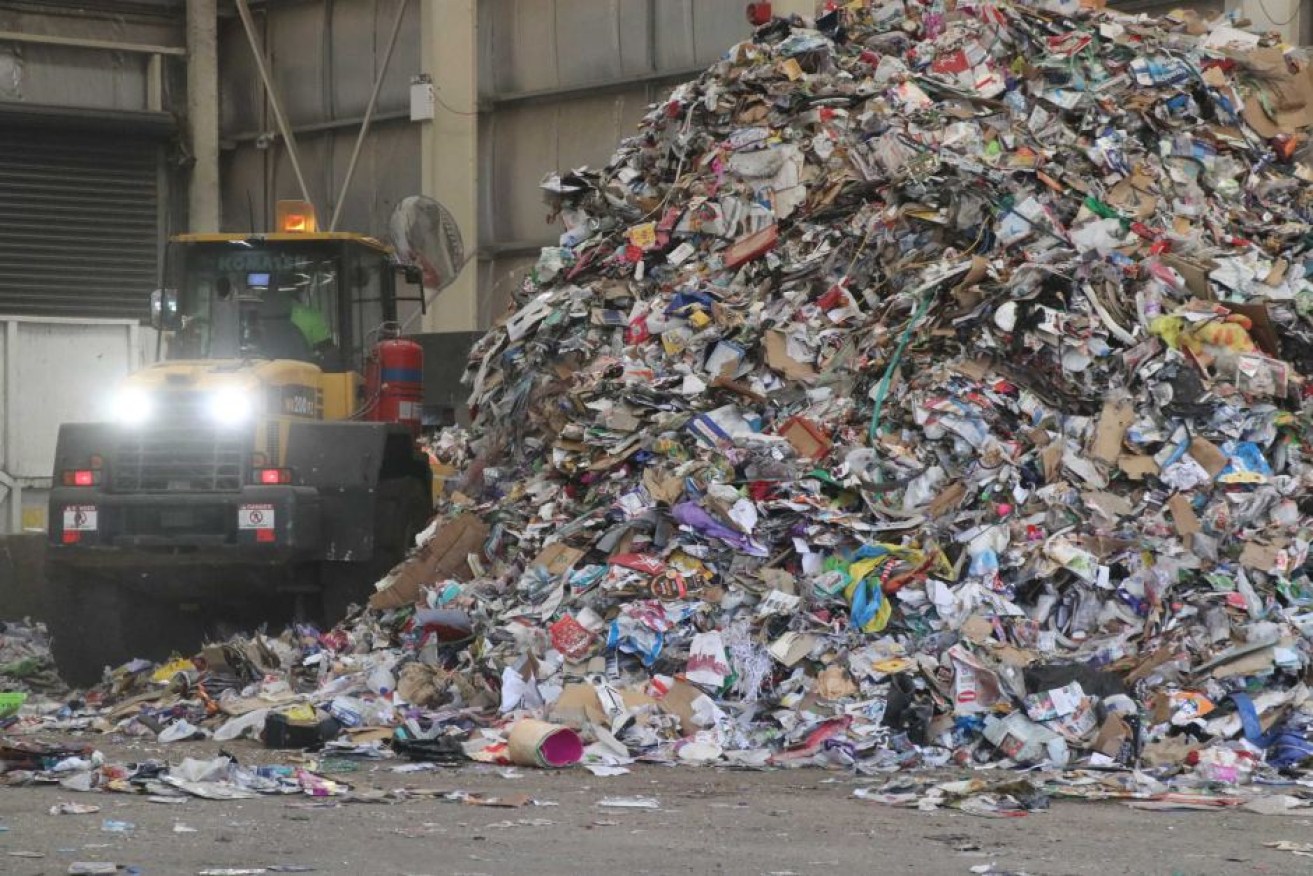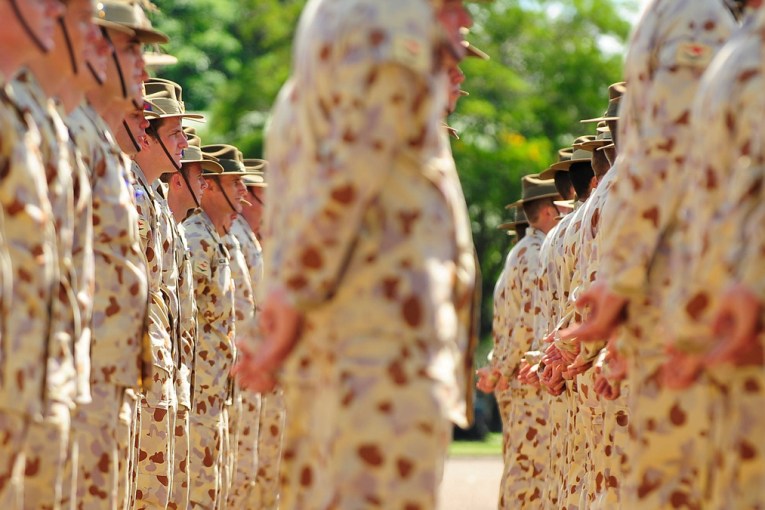Australian scientists may have solved our plastic recycling problem

Australia is losing the war on waste following China's decision to stop taking our recycling a year ago. Photo: ABC News/Simon Goodes
Australian scientists have developed a technology they say could make all plastic recyclable, as the country grapples with how to deal with its waste crisis.
The patented technology was created by Dr Len Humphreys and Sydney University professor Thomas Maschmeyer, who say it could process plastics that cannot currently be recycled.
Australians throw out 3.5 million tonnes of plastic each year, but currently only around 10 per cent of it is recycled.
The rest is either burned, buried or shipped overseas.
Recycling plastic into fuel or new plastics

Dr Len Humphreys says his recycling company is opening its first commercial plant in the UK due to that government’s incentives. Photo: ABC
When China announced in January 2018 that it would stop taking Australia’s recyclable waste it was a wake-up call for the industry.
Now Dr Humphreys sees the mountains of stockpiled plastic as a wasted resource – one he says could be used instead as fuel or remade into new plastic.
His Catalytic Hydrothermal Reactor (Cat-HTR) does just that through a form of chemical recycling that changes the plastics at a molecular level using hot water at a high pressure to turn them back into oil.
“What we’re doing is we’re simply taking those materials and converting them back to the liquids and the chemicals they came from,” he told 7.30.
From there, the oil can be turned into bitumen, petrol or back into different kinds of plastics.
Dr Humphreys said the Cat-HTR technology he and his co-founder patented was different from existing plastic-to-oil technologies like pyrolysis, which is a process that involves heating materials at a very high temperature.
Unlike traditional physical recycling, it does not require plastics to be separated according to type and colour, and can recycle anything from milk cartons to wetsuits and even wood byproducts.
It also means plastic products can be recycled again and again.
After trialling the technology for the past decade at a pilot plant on the NSW central coast, the company Licella is now ready to take its idea to market.
It is opening its first commercial recycling plant in the United Kingdom, where it says the government grants and policy environment are much more favourable than in Australia.
“They incentivise the market,” said Dr Humphreys, Licella’s co-founder and chief executive officer.
“We don’t do that here. We’re not incentivising the market here.
“We’re five or six years behind the thinking of what really stimulated the market in Europe.”
Government in talks with Licella

Oil made from recycled plastic at Licella’s pilot plant. Photo: ABC
The federal government said it does offer incentives for the recycling industry in Australia.
“It’s not about grants. It’s not about the government paying for something to be done,” Environment Minister Sussan Ley told 7.30.
“It’s about supporting the entire supply and investment chain in a way that allows business to do what it does best.”
Ms Ley said she was in talks with Licella.
“I’m looking forward to meeting with Licella and hearing what their plans are and how the Australian government may be able to support them,” she said.
The company says a commercial facility could process around 20,000 tonnes of plastic a year.
It would take dozens of those facilities to make a substantial dent in Australia’s plastic problem.
Professor Damian Giurco, a director at the Institute for Sustainable Futures at the University of Technology Sydney, was impressed by the technology and said it could be one part of the solution.
“When we think about how we need to design our systems for plastic use and reuse in the economy, one technology is not going to be a silver bullet,” he told 7.30.
But he said the bigger problem to address is our overconsumption of plastic.
The process of turning rubbish into fuel may sound familiar to sci-fi fans. In the film Back to the Future the time machine car uses garbage as fuel.
The industry has been widely described as in crisis, with a Senate report last year stating that “enormous quantities of recycled material, particularly materials collected through kerbside recycling, are now being stockpiled at great risk to the health and safety of local communities. Moreover, quantities of otherwise recyclable material are being sent to landfill”.








